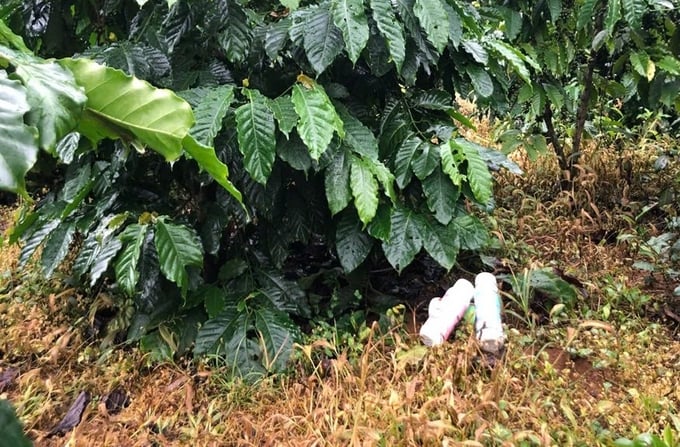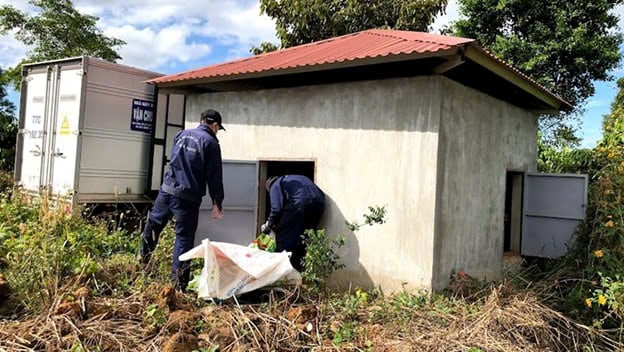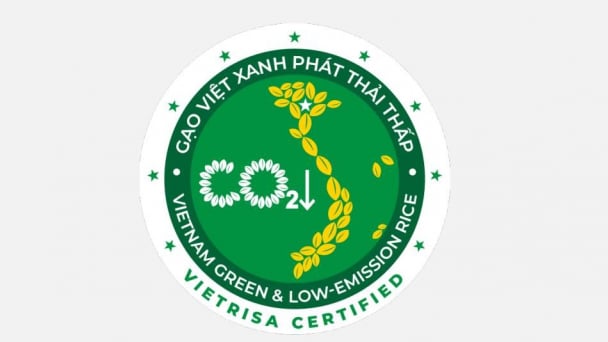May 16, 2025 | 07:10 GMT +7
May 16, 2025 | 07:10 GMT +7
Hotline: 0913.378.918
May 16, 2025 | 07:10 GMT +7
Hotline: 0913.378.918

Mr. Le Quoc Thanh (standing), Director of the National Agricultural Extension Center, believes that the issue of waste in agricultural production is the responsibility of the entire community. Photo: PC.
On the morning of October 28, in Da Lat City (Lam Dong Province), the National Agricultural Extension Center held a workshop titled "Current status of agricultural material use and solutions for waste collection and treatment in coffee production".
The conference focused on assessing the impact of intercropping in coffee gardens on major pests and promoting responsible pesticide use to develop sustainable coffee production in the Central Highlands provinces of Vietnam through a survey conducted with 150 households in Kon Tum, Dak Lak and Lam Dong, with an average area of 1.4 ha/ household.
The survey results showed that most experienced coffee farmers follow proper technical procedures. The majority use mechanical weeding, cutting grass to ensure ground cover, with only a small percentage (5.3%) still applying herbicides.

The amount of pesticide packaging waste generated in coffee production in 2023 is 2.15 thousand tons. Photo: PC.
However, the improper use of pesticides remains common in coffee production. Intercropping coffee with industrial crops and fruit trees is increasingly popular in the five Central Highlands provinces, leading to cross-contamination of pesticides used, making the management of pesticide residues on coffee beans very difficult and complex.
Meanwhile, major export markets for Vietnamese coffee, such as Europe and the United States, have increasingly stringent requirements regarding food safety and pesticide residues, with a continuously updated list of banned substances.

The amount of pesticide packaging waste collected and processed is still limited. Photo: PC.
Experts at the workshop proposed solutions for waste treatment in coffee production, including better training for local officials on pesticide management and enhanced education for farmers on proper pesticide use.
Mr. Le Quoc Thanh, Director of the National Agricultural Extension Center, noted that despite existing regulations, many areas struggle with effective pesticide waste management due to inadequate infrastructure, low public awareness, and lack of coordinated government involvement.
"We need to clearly identify the stakeholders in this waste management chain, starting from pesticide users, the responsibility of waste collectors, to transporters and processors. All these stakeholders must have their capacities enhanced and be held collectively accountable", Mr. Le Quoc Thanh emphasized.
Translated by Phuong Linh

(VAN) Veterinary training should focus on quality, not just quantity. Veterinarians also need more options to pursue specialized training.

(VAN) The veterinary industry needs to be viewed objectively and further invested in to properly demonstrate its role and importance in the new context.

(VAN) The number of veterinarians graduating each year is not enough to meet actual needs, hence a difficult problem for the growing livestock industry.

(VAN) The strategic partnership between Cambodia, the Philippines, Vietnam, and CGIAR ensures that innovative solutions effectively address national priorities for food system development.

(VAN) This was affirmed by the UK Minister of State at the Department for Environment, Food and Rural Affairs during a working session with Deputy Minister Tran Thanh Nam on May 13.

(VAN) On May 13, the Ministry of Agriculture and Environment, in coordination with the Embassy of Vietnam in the United Kingdom, organized a seminar titled 'Connecting trade in Vietnam-UK agricultural, forestry, and fishery products'.

(VAN) The launch of the Vietnam green and low-emission rice brand is a positive signal for both businesses and farmers, marking readiness to reach new heights in the global market.